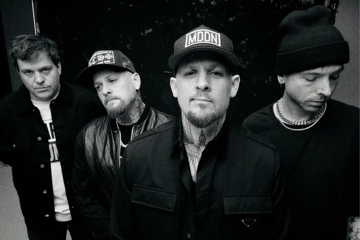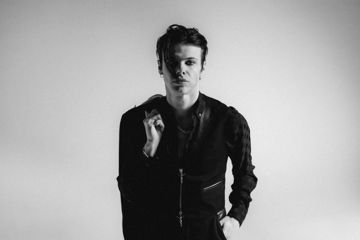Don't Worry, Nine Inch Nails Still Have It... And Then Some
'They remain eminently capable of making music for a darkened room for you to rock back and forth in the foetal position.'
There’s many artists and bands out there just trading on their brand-names and reputation rather than honouring their history or even just letting themselves quietly fade away. But some, no matter how long between drinks, still do the business. From its opening fugue This Isn’t The Place (The Null Corporation) is oppressive – but strangely familiar and comfortable with it – and Nine Inch Nails are almost immediately identifiable as the authors. Trent Reznor shapes it so the voice doesn’t intone until hallway through the drone, your expectation just adding to the unease. Yes, they remain eminently capable of making music for a darkened room for you to rock back and forth in the foetal position.
Somewhat surprising new music from Garbage as well, relatively soon after the Strange Little Birds album. But No Horses (StunVolume) is an interesting beast, throwing back to the more electronic layers of their early years, before stomping out as it goes. Ad it unfurls over its five-and-a-minutes, Shirley Manson still manages to whisper and threaten - making historical, political, and social points – while still having those ‘big black boots’ grinding into your breastbone seem an attractive prospect. Or that might be just me. Proceeds to the Red Cross, showing their heart and conscience remains in the right place as well.
This approach of being yourself, while taking your own good time to get there also fits with Ross McLennan’s first noise in about five years. Again taking over five minutes to unfurl, Selling Good News (Mistletone) has the former Snout founder letting you in on his often jaundiced thought processes without much of a filter, while conversely never forgetting he’s making a pop song. There’s a lot of both light and shade going on, but somehow spaces are left through the conversation. Apparently live it’s going to take a nine-or-ten piece band to recreate something that is one of those songs that echoes around in your head even after it finishes.
Don't miss a beat with our FREE daily newsletter
Same but different: it takes six-and-a-half minutes for Strangest Thing (Atlantic) to look up at the sky and encourage the listener to do the same. The War On Drugs have an interesting relationship with Australia, who have hugely embraced the band’s erstwhile co-founder, Kurt Vile, while never quite reaching the same level of affection for his origin story. For his part, Adam Granduciel’s here music is bigger – almost slightly psychedelic in its beginnings here, before opening its visions to a kind of Wilco-esque (of their more widescreen moments) feeling, and you might even throw in a slightly emo undertone. Well, that’s more than enough going on, isn’t it? Trick is, it seems to know exactly what it’s doing, and where it’s heading, and becomes quite a thing in its own right.
Of course, brevity remains of souls of punk – although punk may argue it doesn’t have a soul at all. Existential, eh? Relatedly, old punk bands never die - they just wear out guitarists, and find their leather jacket may not fit like they used to. With a 30-year history, Propagandhi stick by the rules and cut off the tape a smidgen short of three minutes in their churning first release in five years, Victory Lap (Epitaph/Cooking Vinyl). We’ll then consider how a place like Canada can even deliver such perennial political anger as this – although they are able to just cast an eye over their southern border to show how things can turn to shit in a surprisingly short time.
Meanwhile, you damn kids are going deep, reading Heidegger and borrowing his philosophising for your pop tunes. Fierce Mild describe themselves as ‘post-electro’, but Dasein (Independent) has waves of moodiness washing across you that might have some Radiohead pondering to it, but also shows they know some of their history as well – a Pink Floyd namecheck also making perfect sense. An in-built visual element when they play live is also confident and assured in its use, further setting them apart from more usual pub-ish fare.
Further down the angsty end of moody, Slum Sociable manage to get some regret to mix in with some ‘Would you please just fuck off?’ as the relationship is noted in the rear-view mirror of Don’t Come Back Another 100 Times (Liberation). Though synthetically assembled, the emotions seem real. It’s restrained electronica of the modern pop model, but good at it, and most likely to turn up on the playlist of that national youth network in short order, for that is the ideal place for it.
Morning TV make a music redolent of their name in a couple of ways. There’s that distracted waking feeling you get when you click the remote and find Larry and Kylie, or Barnesy’s boy David Campbell and that annoyingly vacant right-wing nutbar with whom he co-hosts filling in the spaces between people trying to sell you funeral insurance or a convertible ladder. Let It Lie (Habit) also leaves spaces, but the bits going on in between are a little more interesting, as a languidly chatty wispy indie thought process reveals itself and has you listening and tapping your foot, albeit gently.







